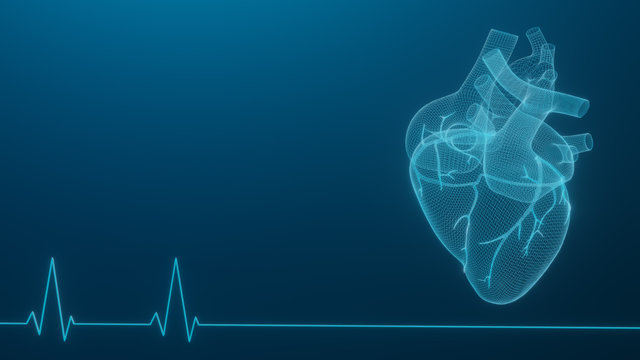The evolving science of Cardiology and its real-world benefits
The evolving science of Cardiology and its real-world benefits
Blog Article
Understanding the Value of Cardiology in Modern Healthcare Providers
Cardiology plays a critical duty in modern-day healthcare, specifically as heart problem remains to be the leading root cause of mortality worldwide. Advancements in diagnostics and therapy have actually changed person care, allowing earlier interventions and improved outcomes. The shift towards preventive cardiology empowers people to handle their health and wellness proactively. As innovation remains to develop, the integration of cutting-edge remedies might even more redefine cardiology's influence on public wellness, triggering a better examination of arising patterns and their implications.
The Frequency of Heart Problem and Its Effect On Public Health
Heart disease continues to be the leading cause of fatality worldwide, its impact prolongs much beyond specific clients to affect public health and wellness systems and economic situations. The high occurrence of heart disease puts a substantial pressure on healthcare sources, necessitating boosted financing for recovery, prevention, and treatment programs. Public wellness initiatives need to address danger variables such as weight problems, smoking cigarettes, and sedentary way of lives, which add greatly to the increasing occurrence of heart conditions.Moreover, the financial burden connected with heart condition is immense, including not only straight clinical costs however likewise indirect expenditures connected to lost efficiency and early death. Communities face obstacles in managing these costs, usually leading to disparities in health care gain access to and results. As the populace ages and lifestyle-related risks remain to escalate, the necessity for efficient cardiology treatments comes to be paramount. Subsequently, attending to cardiovascular disease is not only an issue of specific health however also a crucial public health concern.
Advances in Cardiac Diagnostics and Imaging Techniques
Current innovations in heart diagnostics and imaging methods have revolutionized the area of cardiology, boosting the capability to discover and keep track of heart conditions. Methods such as cardiac MRI, CT angiography, and echocardiography have actually come to be progressively sophisticated, giving in-depth pictures of heart frameworks and functions. These methods enable for the very early identification of conditions like coronary artery illness, heart failure, and valvular disorders.Moreover, advancements in non-invasive diagnostics, such as wearable modern technology and remote tracking tools, have empowered people and health care service providers. These devices help with real-time monitoring of heart rhythms and other essential indications, leading to prompt treatments. Furthermore, artificial intelligence is being incorporated into imaging evaluation, improving precision and performance in diagnosis.
Technologies in Treatment Choices for Heart Issues
Recent innovations in cardiology have caused substantial developments in therapy alternatives for heart conditions. These consist of innovative surgical methods that boost procedural results and arising medications that provide brand-new methods for therapy. As the field progresses, these innovations play an important function in boosting patient care and results.
Advanced Surgical Techniques
Technologies in medical techniques have changed the landscape of cardiology, supplying brand-new hope for clients with heart disease. Minimally invasive treatments, such as catheter-based interventions, have actually considerably reduced recovery times and healthcare facility keeps. Techniques like robotic-assisted surgery enhance precision, permitting surgeons to navigate complex anatomical structures with greater accuracy. Additionally, improvements in imaging modern technology help with real-time visualization during procedures, improving outcomes. Transcatheter aortic valve replacement (TAVR) exemplifies an advancement in treating aortic constriction, making it possible for shutoff replacement without open-heart surgery. Additionally, hybrid strategies that incorporate medical and catheter-based methods provide customized options for different cardiac concerns. These sophisticated surgical techniques not just enhance client safety yet additionally broaden treatment alternatives, highlighting the vital role of technology in modern-day cardiology methods.
Arising Medicines and Therapies
As the landscape of cardiology proceeds to progress, emerging drugs and therapies play a pivotal duty in improving treatment choices for heart conditions. Technologies such as unique anticoagulants and advanced lipid-lowering representatives have changed the management of cardio illness, greatly lowering client morbidity and death. Furthermore, the growth of genetics therapies and regenerative medicine offers encouraging avenues for dealing with conditions formerly deemed incurable. Professional tests are consistently revealing the efficiency of these treatments, pushing the limits of conventional treatments. Moreover, the integration of digital health and wellness innovations facilitates tailored medicine, permitting for tailored therapy plans based upon hereditary and lifestyle variables. Jointly, these innovations highlight the dynamic nature of cardiology, boosting patient results and redefining criteria of treatment in modern healthcare.
The Role of Preventive Cardiology in Client Care
Precautionary cardiology plays a crucial duty in patient treatment by concentrating on the recognition of threat variables that add to heart problem. Through lifestyle modification strategies and very early discovery techniques, doctor can properly lower the occurrence of cardiovascular events - Cardiology. This aggressive technique not only improves patient outcomes but additionally advertises long-lasting health and wellness
Danger Aspect Identification
While heart diseases remain a leading reason of morbidity and death worldwide, efficient risk factor recognition functions as a foundation of preventative cardiology. Determining risk factors such as high blood pressure, diabetic issues, hyperlipidemia, and household background is crucial for very early intervention. Medical care specialists make use of different screening techniques to assess these factors, permitting for customized safety nets. In addition, recognizing an individual's way of life options, such as smoking and physical lack of exercise, further notifies threat assessments. This thorough examination makes it possible for clinicians to create individualized treatment plans targeted at mitigating threats. By prioritizing danger variable identification, health care systems can boost patient results and lower the overall problem of cardio diseases, ultimately adding to boosted public health techniques and source appropriation.
Lifestyle Modification Techniques
A plethora of researches highlights the crucial function of way of life alteration strategies in decreasing cardiovascular illness danger. These methods incorporate nutritional changes, enhanced exercise, cigarette smoking cessation, and weight monitoring. By taking on a heart-healthy diet regimen abundant in fruits, veggies, entire grains, and lean proteins, individuals can decrease cholesterol levels and high blood pressure. Normal physical activity enhances the heart and enhances general cardio health and wellness. In addition, stopping smoking greatly lowers the risk of heart problem and enhances recuperation prices for those with present problems. Weight administration even more adds to cardiovascular wellness by minimizing various other danger elements such as diabetes and hypertension. Applying these way of living alters not only promotes specific wellness but also functions as a cornerstone of preventative cardiology in person care.
Early Discovery Methods
Way of life alterations substantially add to minimizing cardiovascular condition dangers, but they are most reliable when coupled with early discovery methods. Precautionary cardiology stresses the significance of determining prospective heart issues prior to they intensify right into serious problems. Techniques such as blood pressure tracking, cholesterol testing, and progressed imaging modern technologies like echocardiograms play vital roles in reviewing cardiovascular health. Biomarkers and hereditary screening additionally boost the precision of very early detection, permitting customized preventive approaches. Regular cardiac risk analyses equip healthcare carriers to intervene proactively, possibly preventing cardiovascular disease and strokes (Cardiology Jupiter). By integrating these early detection approaches into regular treatment, clients can profit from timely lifestyle interventions and targeted therapies, eventually improving and improving results high quality of life
Integrating Innovation Into Cardiology Practices
As advancements in technology remain to improve various areas, the assimilation of innovative tools and systems into cardiology methods has actually ended up being important for improving individual treatment and end results. Telemedicine systems allow cardiologists to monitor patients remotely, enhancing accessibility to care while lowering the worry on medical care centers. Wearable tools, such as smartwatches, make it possible for continual heart price surveillance, signaling both people and medical professionals to prospective problems in real-time. check my blog Furthermore, synthetic intelligence (AI) is being utilized to assess substantial quantities of heart data, assisting in early medical diagnosis and tailored therapy strategies. Advanced imaging techniques, including 3D echocardiography, boost visualization of heart frameworks, causing much more precise treatments. Digital health and wellness records (EHRs) streamline person details administration, guaranteeing that cardiologists have immediate accessibility to vital data. With each other, these technical developments are transforming cardiology, advertising proactive monitoring and enhanced health end results for individuals with cardiovascular problems.
The Relevance of Client Education And Learning and Engagement
Person education and interaction play a pivotal function in the monitoring of cardiovascular health and wellness. By outfitting clients with understanding about their conditions, therapy alternatives, and lifestyle modifications, doctor encourage individuals to take an active function in their treatment. This proactive method can cause improved adherence to recommended medicines, nutritional changes, and exercise programs, inevitably reducing the danger of complications.Engagement likewise cultivates a solid patient-provider relationship, encouraging open communication and count on. When individuals really feel educated and entailed, they are more likely to voice concerns and ask questions, which can result in much better scientific end results. In addition, educational sources, such as workshops or digital platforms, article source can enhance understanding and promote self-management techniques. In general, prioritizing patient education and engagement is important for enhancing cardiovascular health, improving lifestyle, and lowering medical care prices related to heart diseases.
Future Patterns in Cardiology and Their Prospective Impact

Often Asked Questions
What Lifestyle Adjustments Can Minimize Heart Illness Risk?
The existing inquiry addresses way of life changes that can greatly lower heart illness risk. Cardiology. Embracing a balanced diet regimen, involving in regular physical activity, keeping a healthy weight, managing stress and anxiety, and preventing cigarette can significantly improve cardio health and wellness
Just How Can I Acknowledge Early Indications of Heart Problems?
Identifying early indicators of heart issues involves tracking signs and symptoms such as breast discomfort, lack of breath, fatigue, and uneven heart beat. Timely understanding of these indicators can trigger essential medical analysis and intervention for much better end results.
What Are the Differences In Between Cardiologists and Heart Surgeons?
The differences between cardiologists and heart surgeons exist in their duties; cardiologists primarily identify and manage heart conditions through non-invasive methods, while cardiac surgeons perform medical procedures to correct structural heart problems. Each plays a crucial, distinct duty.

Just how Commonly Should I Get My Heart Health Checked?
The regularity of heart wellness checks varies based on specific danger factors. Usually, grownups ought to undertake examinations every one to 2 years, while those with current conditions might require even more regular assessments as encouraged by health care professionals.
What Function Does Genetics Play in Heart Condition Risk?
Genes significantly affects heart problem threat, with familial patterns indicating acquired problems. Certain genetics can predispose people to hypertension, cholesterol concerns, and other cardio problems, highlighting the value of hereditary testing in examining heart health. Heart illness continues to be the leading cause of fatality globally, its effect expands far beyond specific patients to impact public wellness systems and economic climates. Public wellness initiatives should resolve risk aspects such as excessive weight, smoking, and inactive way of livings, which contribute significantly to the climbing occurrence of next heart conditions.Moreover, the economic concern connected with heart condition is tremendous, encompassing not only direct clinical prices yet also indirect expenses associated to shed performance and early death. Preventive cardiology plays a vital duty in person treatment by concentrating on the identification of risk factors that contribute to heart illness. Synthetic knowledge (AI) and maker understanding are boosting diagnostics and person surveillance, making it possible for very early discovery of heart conditions. The distinctions in between cardiologists and heart doctors exist in their duties; cardiologists primarily take care of and detect heart problems via non-invasive approaches, while heart doctors perform surgical procedures to fix structural heart issues.
Report this page